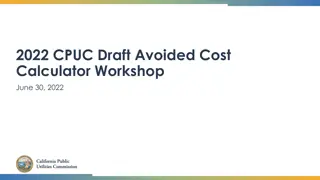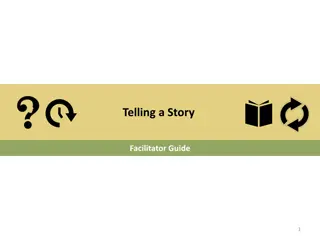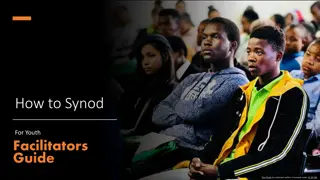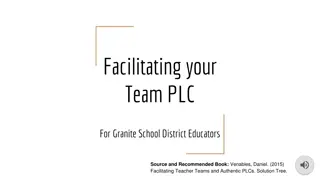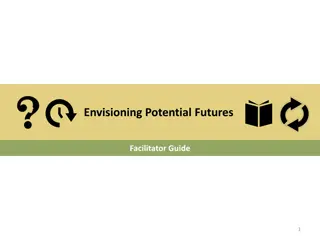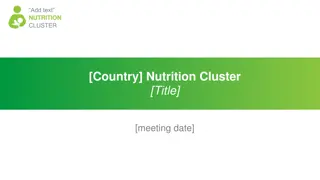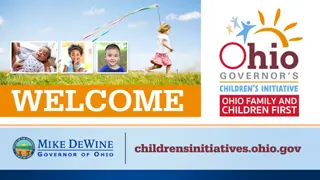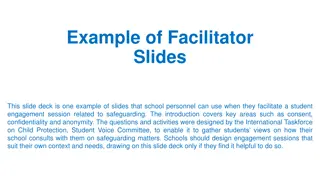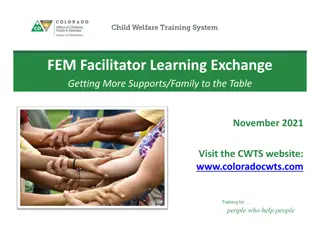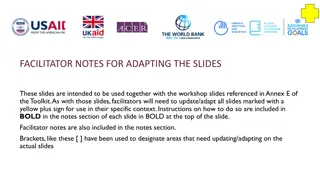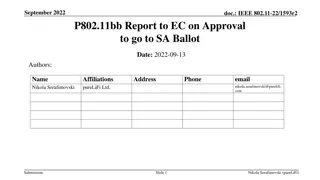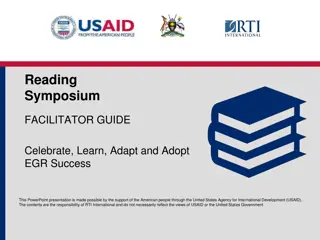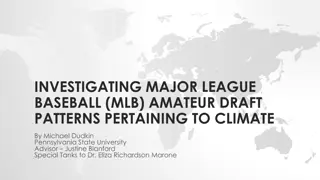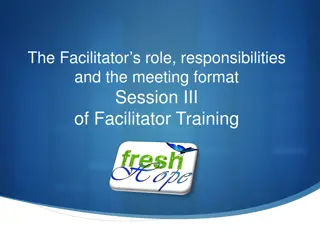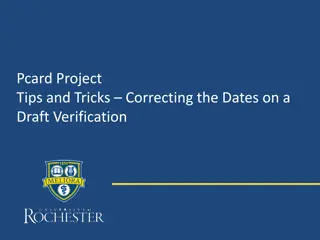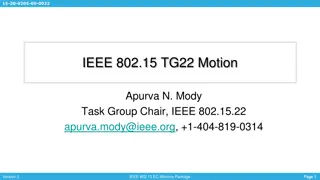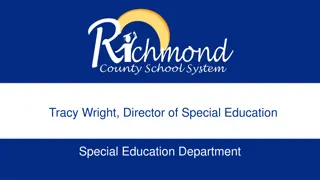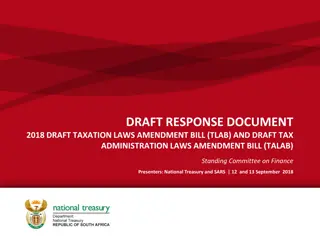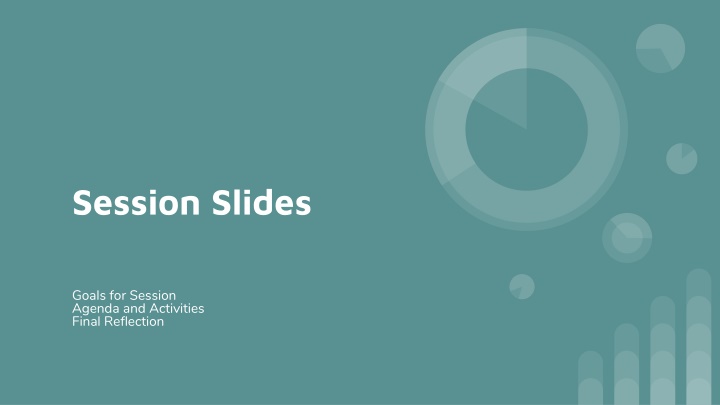
Scientific Work Reflection, Communication, and Leadership Development
Explore the structure, goals, and activities of a session focusing on sharing work progress, engaging in discussions, reflecting on learning, and developing leadership skills in a scientific setting. Topics include mentorship, career goals, active listening, and fostering scientific independence.
Download Presentation

Please find below an Image/Link to download the presentation.
The content on the website is provided AS IS for your information and personal use only. It may not be sold, licensed, or shared on other websites without obtaining consent from the author. If you encounter any issues during the download, it is possible that the publisher has removed the file from their server.
You are allowed to download the files provided on this website for personal or commercial use, subject to the condition that they are used lawfully. All files are the property of their respective owners.
The content on the website is provided AS IS for your information and personal use only. It may not be sold, licensed, or shared on other websites without obtaining consent from the author.
E N D
Presentation Transcript
Session Slides Goals for Session Agenda and Activities Final Reflection
Session Goals 1.7 & 1.8 GOALS: STRUCTURE: Share the work that you are doing on your own as you go through the course Will meet every __ weeks for __ hours Large and small group discussions Reflect on your learning Logbook Activities, Program Reflection, Better Science, and Lab Manual questions can be part of each session Practice some of the tools that you were introduced to in the course Get to know others in your lab/class
Activities & Discussions
PROGRAM REFLECTION MENTORING CAREER GOALS Listening as Leadership Active listening means listening without judgment to fully understand what the other person is saying. It goes beyond listening to the words good active listening includes paying attention to the other person s tone and body language. In this scene, grad fellow Alex Park is struggling to communicate doesn t feel like leadership is listening to him about his career goals. Discuss the following questions in your small groups (10-15 Minutes): In thinking about Alex s struggles to find a direction, how does one develop scientific independence? How does it change through the course of: 1) a graduate program, and 2) a post-doc career? Think of one or two questions you might want to ask a mentor or lab leader that would help you develop along the paths to independence in a graduate program or post-doc Ask one person to take notes for sharing with the larger group.
PROGRAM REFLECTION COMMUNICATION When Experiments Fail Share one or two key takeaways from your small group discussion with the whole group (5-10 Minutes). Discuss as a large group: Share the questions that you generated in the small group activity concerning mentorship and career guidance
LOGBOOK ACTIVITY VALUES Listening as Leadership Practice Active Listening with a Partner (10 Minutes): Active listening means listening without judgment to fully understand what the other person is saying. Find a partner and take turns being the listener/questioner. 1. 2. Agree which of you will start as the listener/questioner; the other will be the first speaker. Select a topic on which the two of you disagree and develop specific phrasing for how to pose a controversial question about it avoid something too controversial (no politics or religion). For example, is our department (or group) advice/policy on preprints a good approach? should authorship order be alphabetical?, or should peer review be anonymous? Set a timer for 2 minutes. This listener poses the agreed-upon controversial question and then for the next two minutes listens to the speaker and says only: (1) tell me more about that, or (2) Help me understand more about , or (3) Nodding and affirming NOTE The listener may not take notes, this is a listening activity. When the timer goes off, the listener should repeat back the vies of the speaker to the speaker s satisfaction. Switch roles, set the timer and repeat 3. 4. 5. 6. 7.
PROGRAM REFLECTION PERSONAL SCRIPTS CAREER GOALS Words When You Need Them Think of a situation you have faced in which you didn t know what to say, wished you had said something different, or perhaps even said nothing at all. What might have helped in that situation? With the benefit of hindsight, what would have been the right thing to say? Small Group Activity (10-15 Minutes): Select a situation some of you in the group may face in the future that you are anxious about, not necessarily the most important one in your life but a simple one. As a group, take a moment to brainstorm and write down personal scripts that you could say. Discuss with the group which are the best/most helpful
PROGRAM REFLECTION PERSONAL SCRIPTS CAREER GOALS Words When You Need Them Share the situation your group discussed and one or two of the best personal scripts with the larger group (5-10 Minutes). Discuss as a large group: What power comes from having specific words ready for these situations?
BETTER SCIENCE Better Science Discussion Key to the topic of this episode is the general disarray of the lab notebooks in the Sorenson Lab. Discuss the following questions (10-15 Minutes): What controls should be in place to ensure that all relevant information makes it into a lab notebook? What IS relevant information [while that might differ project to project, are there any pieces of information that should ALWAYS be included in a lab notebook?]? How can lab members hold each other accountable?
LAB MANUAL Lab Manual Discussion Questions Consider how at the center of these scenes are issues of civility and treating others with respect. In small group Discuss the Following (10 Minutes): What information should be in the lab manual about how to talk respectfully to other people in the lab? Would it be helpful to include guidelines for discussions? Any other communication?

